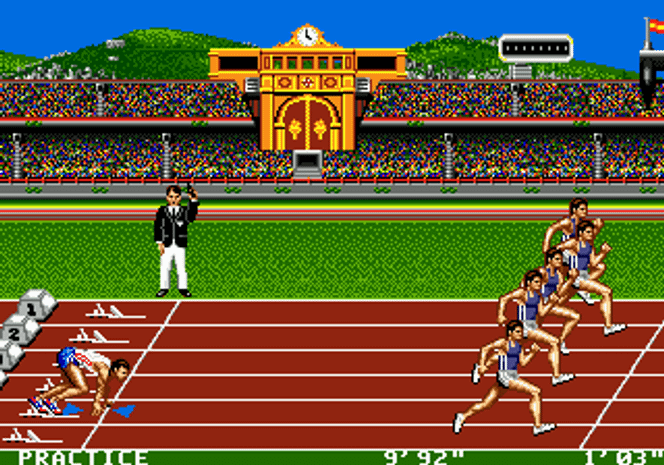


Pole vault, 100 meters, 110-meter hurdles: In the last 40 years – with the exception of the 1988 Seoul Games – every single edition of the Summer Olympic Games has created a video game version of its flagship events. With varying degrees of success. The important thing, they say, is to take part. Until this Olympics: You'll be hard-pressed to find the official Paris 2024 game on store shelves or online stores.
For Christopher Paul, a professor of communications and media at Seattle University, the disappearance of Olympic video games is primarily a question of economics. "Sports games are extremely time-sensitive products that are only bought at the start of the sporting season. With Olympic video games, it's even worse: The publisher only has a two-month window every four years during which it can hope to sell it," he explained.
The difficult economic climate facing the video game industry is not helping. Development costs are skyrocketing, requiring games to achieve huge sales volumes if they are to be profitable. While costs are assured, and in particular the fee for using the official "Olympic Games" license, revenues are not – unlike classic sports games such as EA Sports FC (formerly FIFA), which can count on a loyal audience built up over several decades. "When a new version is released, parties are organized, people line up in front of stores to get the game the minute it's available, when they're not paying for access to early versions," pointed out Paul.
Historically compilations of simplistic events rather than cutting-edge simulations, the Olympic video games were already seeing their star wane when the Mario and Sonic at the Olympic Games series came along in 2007 to refresh the formula. Their approach was to adopt a childlike atmosphere drawn from the Nintendo and Sega universes. On the DS and Wii consoles, this official adaptation of the Beijing Olympics sold over 11 million copies.
Nevertheless, for Paul, the specific context should not be forgotten: "The Wii was perfect for an Olympic title. It marked a unique moment during which a whole new audience, freshly converted to video games and accustomed to Wii Sports [a compilation of sporting events sold with the console], was also very interested in the Olympic Games." Sold as user-friendly and physical thanks to its four motion-recognition controllers that require you to move around in front of your TV, Nintendo's console fits in well with the principle of a sporting competition. So much so, in fact, that the Mario and Sonic at the Olympic Games series were repeated at every Olympiad, initially alongside the more traditional Olympic Games video games, before eventually replacing them in 2016.
You have 40.61% of this article left to read. The rest is for subscribers only.
